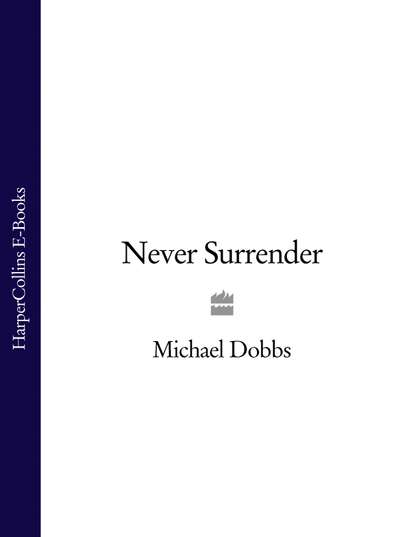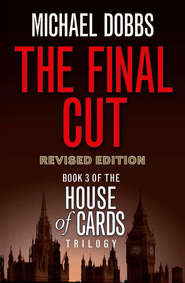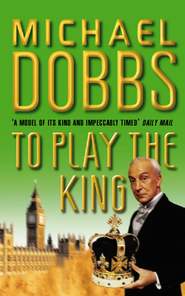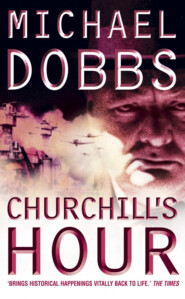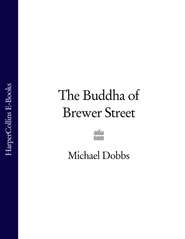По всем вопросам обращайтесь на: info@litportal.ru
(©) 2003-2025.
✖
Never Surrender
Настройки чтения
Размер шрифта
Высота строк
Поля
‘I have no time for cheap comparisons, Frau Mueller. I thought you might help. Will you?’
Her cheeks flushed. ‘Help you? Why should I? I don’t like you, Mr Churchill. I don’t like any politicians. They’ve done nothing but ruin my life.’ She sprang from her chair, not wishing to be near him any longer. ‘What reason could I have for wanting to help you?’
‘Not me personally. Our crusade.’
‘In which millions will die. To save your old man’s pride.’
‘To save both our countries.’
‘I have no country any more.’
‘Then do it for the simple pleasure of proving yourself right – and for the satisfaction of proving That Man wrong!’ He was shouting, although he hadn’t intended to.
‘You and your ridiculous male vanity. You two men will destroy the world with your war. You are so much alike.’
She was already at the door.
‘You will come again,’ he barked, the intonation halfway between question and command.
She had opened the door and was almost out.
‘Please!’ he called after her. ‘I need you.’
She turned, startled. Then she was gone.
THREE (#ulink_b2ed5df2-b64a-5fea-8453-96a9cb2b222f)
Monday 13 May. Winston Churchill had been Prime Minister for just three days. And on that third day it all began to unravel.
Churchill was striding down Parliament Street, Bracken at his side, distractedly acknowledging the waves and shouted greetings of passers-by as he walked to the House of Commons. His mind was ablaze with doubt. So many thoughts crowded in upon him, so many concerns; in less than an hour he had to address the House of Commons like Brutus in the marketplace with Caesar’s blood still fresh upon the floor. Yet less than four years earlier those same men, in that same place, had inflicted upon him the most profound humiliation any Member could imagine. They had jeered him into silence. It had not been a good speech by any standard; it had been an inappropriate and, if truth be admitted, a slightly inebriated intervention on the delicate matter of the abdication. A foolish speech, but not exceptional for that. Yet it wasn’t the speech so much as the speaker they couldn’t stomach. They didn’t care for Winston Churchill, didn’t trust him, thought that even in the egotistical world of Westminster he rose above all others in being outrageous, unprincipled, unreliable and supremely bloody ungrateful. So they had relished their opportunity to jeer, to wave their papers at him in distraction, to screw up their faces and cause so much noise that he couldn’t go on. He had been forced to leave, head bowed in shame, his speech unfinished. Just like his father before him.
Now he would be facing them as Prime Minister – a Prime Minister that many, and perhaps most, did not want.
‘They will render me their bloody hands, and swear unto me their loyalty, assure me of their constancy, even as they march to the fields of Philippi …’
‘What?’ Bracken spluttered in surprise beside him.
‘Shakespeare, you ill-educated louse. They cheered Caesar, then watched him die at the hands of Brutus. After which they cheered Brutus, before watching him die at the hands of Mark Antony.’
‘Thought he committed suicide.’
‘Don’t quibble, man!’
They passed the limestone sculpture of the Cenotaph, the memorial to the fallen. Churchill raised his hat in respect then clamped it forcefully back on his head. ‘They want Neville back,’ he growled. ‘Even those who voted against him declare they never wanted Neville out; they intended only to shake him up a little, not to shake him right out of Downing Street. He’s not even Caesar’s ghost; he’ll be sitting right beside me this afternoon, watching, waiting.’
‘For what?’
‘For calamity, which may not be far away. For all his faults, Neville is an excellent party man and he still holds the majority in Parliament in the palm of his hands. One wink from him and the House will fall down upon me more certainly than if Goering had sent over every last one of his bombers.’
Churchill strode on, his cane flying out in front of him, revealing remarkable energy. Although Bracken was more than a quarter of a century younger, he was having trouble keeping the pace.
‘Can it be that bad, Winston?’
‘You yourself reminded me of the doleful circumstance that I have not a single friend in my own War Cabinet and precious few in the Government as a whole.’
‘There have been a few mutters, of course. Some of the old sods saying that if they’re forced to share power with socialists then the war’s already been lost, that sort of nonsense. But –’
‘I know, I’ve heard. But I thought you were supposed to keep me informed of such things,’ Churchill accused.
‘I thought you had more important matters on your mind. Where did you hear?’
‘It is not widely known – and it must not become widely known – that Mr Chamberlain had a most suspicious mind. Didn’t trust his colleagues, not a bit. So he had their phones tapped.’
‘Bastard,’ Bracken exclaimed in appreciation.
‘It is, of course, illegal, unethical and entirely inappropriate. It is also unfortunate that he left office in such a hurry that he forgot to cancel the phone taps. As a result, yesterday evening I, as his successor, received a large file of transcripts.’
‘Must have made entertaining reading.’
‘They made most depressing reading,’ Churchill snapped. ‘Most of my Ministers appear to have the loyalty of maggots. It appears I run a Government worthy of little more than being fed to the fishes. Incidentally, I have withdrawn the tap on your own phone –’
‘What?’
‘And instructed that your substantial file be condemned to the fire.’
Bracken’s face grew ashen. He was perhaps the most private of politicians, an enthusiastically unmarried man who revelled in the intrigue surrounding others’ private lives while using his considerable personal fortune to protect his own. But phone taps? For how long? And how much did they know? In a pace he had resolved never to trust his life to the telephone again.
‘You look as though you’ve seen a ghost,’ Churchill growled, amused at his friend’s discomfort.
‘Have to say I feel a little like Brutus.’
‘Ah, but it is I who must go to the marketplace and address the mob.’
‘What will you say?’
‘I have never been more uncertain. I pray for inspiration …’
They stood on the edge of Parliament Square waiting for the traffic to clear. The edges of the pavement were daubed with thick white paint to make them visible in the blackout, and the traffic lights stood obscured, showing nothing but faint crosses on their lenses. Three elderly women were waiting with them and they turned to wish him well; automatically he raised his hat once more.
‘We’re with you, Winnie,’ a passing taxi driver yelled through his window.
‘Ah, the people, the people,’ he muttered mournfully to Bracken.
The traffic thinned and they set off toward the Parliament building until, in the middle of the road, Churchill came to an abrupt halt, smacking the silver top of his cane into the palm of his hand.
‘But perhaps that is it, Brendan. The people. The marketplace. And ghosts …’
It meant nothing to Bracken who, mystified, shuffled his companion beyond the reach of the advancing traffic.





